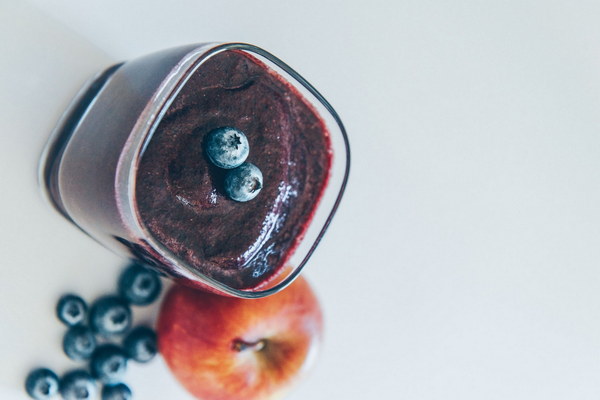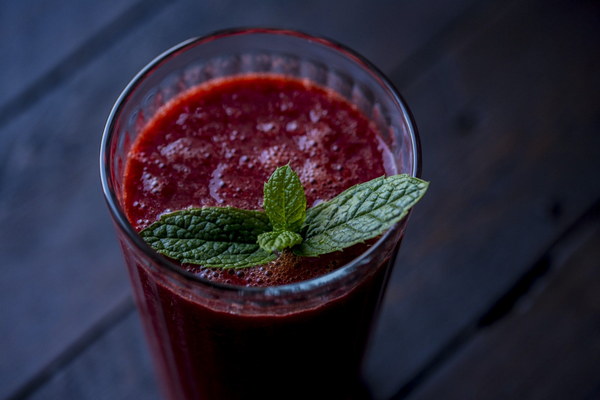Nourish Your Lungs A Comprehensive Guide to LungNourishing Daily Diet
Nourish Your Lungs: A Comprehensive Guide to Lung-Nourishing Daily Diet
The lungs are vital organs that play a crucial role in our respiratory system. They are responsible for taking in oxygen and expelling carbon dioxide, which is essential for our survival. Therefore, it is imperative to take care of our lungs and ensure they remain healthy and robust. One effective way to achieve this is through a lung-nourishing diet. Below, we explore a comprehensive guide to daily dietary practices that can help maintain lung health.
1. Increase Your Intake of Antioxidants
Antioxidants are compounds that help protect our cells from damage caused by free radicals. Consuming a diet rich in antioxidants can help reduce inflammation and oxidative stress in the lungs, which can contribute to respiratory conditions.
- Fruits and Vegetables: Berries, such as blueberries, strawberries, and raspberries, are high in antioxidants. Other fruits like oranges and apples also offer a good source. Leafy greens, such as spinach, kale, and broccoli, are not only rich in antioxidants but also provide essential vitamins and minerals.

- Nuts and Seeds: Almonds, walnuts, chia seeds, and flaxseeds are great sources of antioxidants and healthy fats, which can help reduce inflammation in the body.
2. Incorporate Lung-Nourishing Foods
Certain foods are known for their lung-supporting properties and should be included in your daily diet.
- Garlic: Garlic contains allicin, a compound that has been shown to have anti-inflammatory and antibacterial properties. It can help in reducing the risk of respiratory infections.
- Ginger: Ginger is known for its anti-inflammatory and immune-boosting properties. It can help in alleviating coughs and sore throats, and can be consumed in tea or added to various dishes.
- Green Tea: Green tea is rich in antioxidants and has been linked to improved lung function. It can help in reducing the risk of chronic obstructive pulmonary disease (COPD).
3. Stay Hydrated
Proper hydration is crucial for lung health. Water helps thin mucus, making it easier to expel from the lungs, thereby reducing the risk of respiratory infections and improving lung function.
- Aim to drink at least 8 glasses of water per day. You can also incorporate herbal teas and infused water with slices of fruits and vegetables for variety.
4. Include Omega-3 Fatty Acids
Omega-3 fatty acids have anti-inflammatory properties and can help reduce the risk of lung diseases.
- Fatty Fish: Fish like salmon, mackerel, and sardines are excellent sources of omega-3 fatty acids. Aim to consume fatty fish at least twice a week.
- Flaxseeds and Chia Seeds: These seeds are rich in omega-3 fatty acids and can be easily added to smoothies, salads, or baked goods.
5. Limit Certain Foods and Substances
To maintain optimal lung health, it is important to avoid or limit certain foods and substances that can exacerbate respiratory conditions.
- Saturated and Trans Fats: These fats can increase inflammation in the body and should be limited in your diet.
- Processed Foods: Processed foods often contain preservatives and additives that can be harmful to lung health.
- Smoking and secondhand smoke: Avoid smoking and exposure to secondhand smoke, as they are significant contributors to lung disease.
Conclusion
Maintaining lung health is a multifaceted endeavor that involves a combination of lifestyle choices, including a lung-nourishing diet. By incorporating the right foods and avoiding harmful substances, you can support your lung function and reduce the risk of respiratory conditions. Remember to consult with a healthcare professional before making significant changes to your diet, especially if you have pre-existing lung conditions. With the right approach, you can enjoy a healthier respiratory system and improve your overall quality of life.









